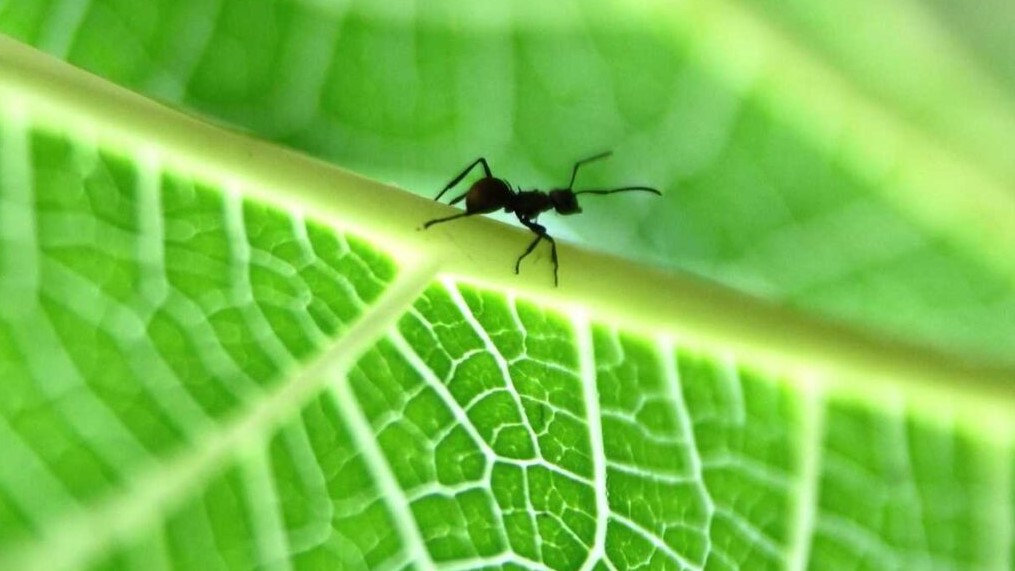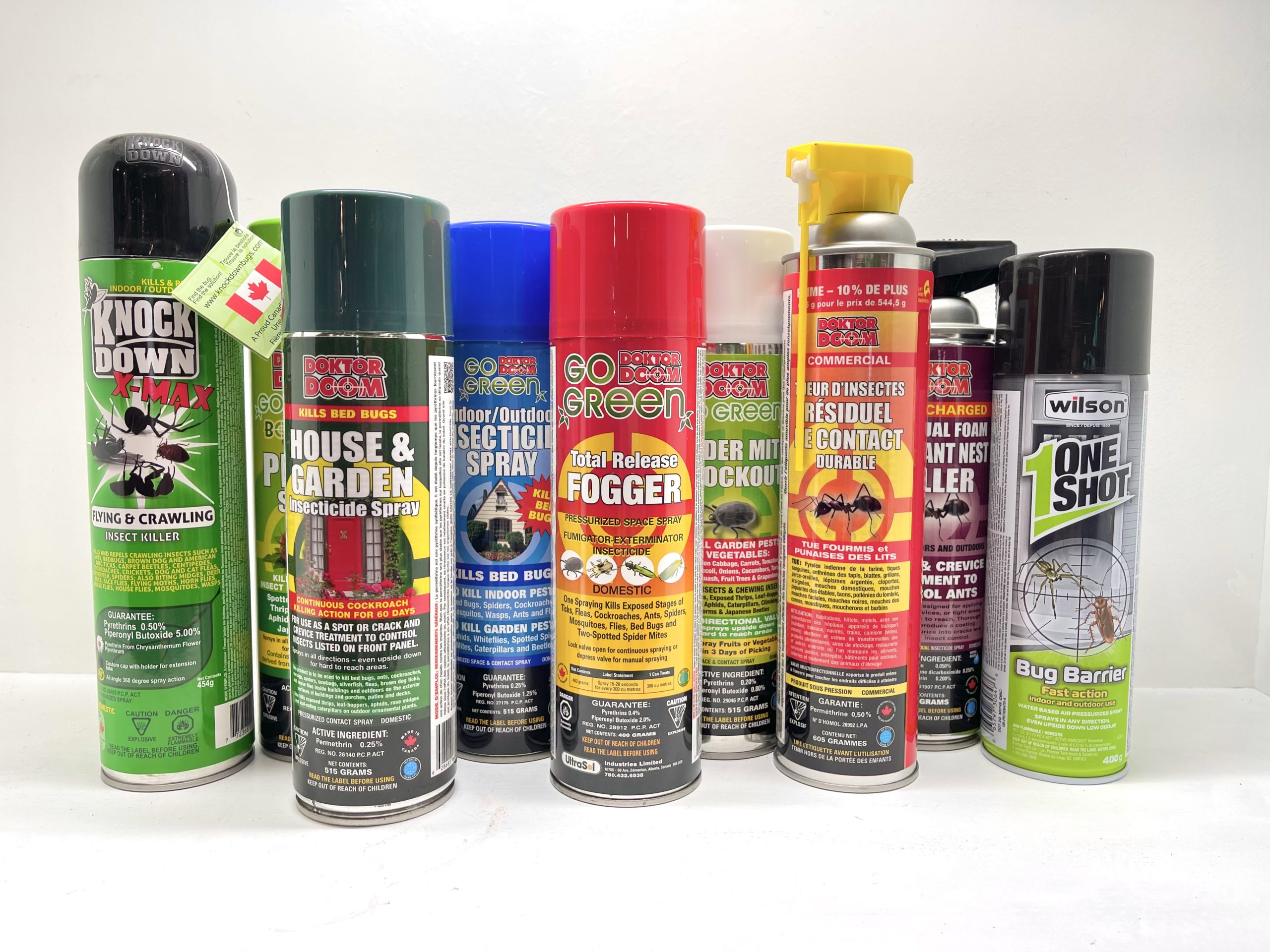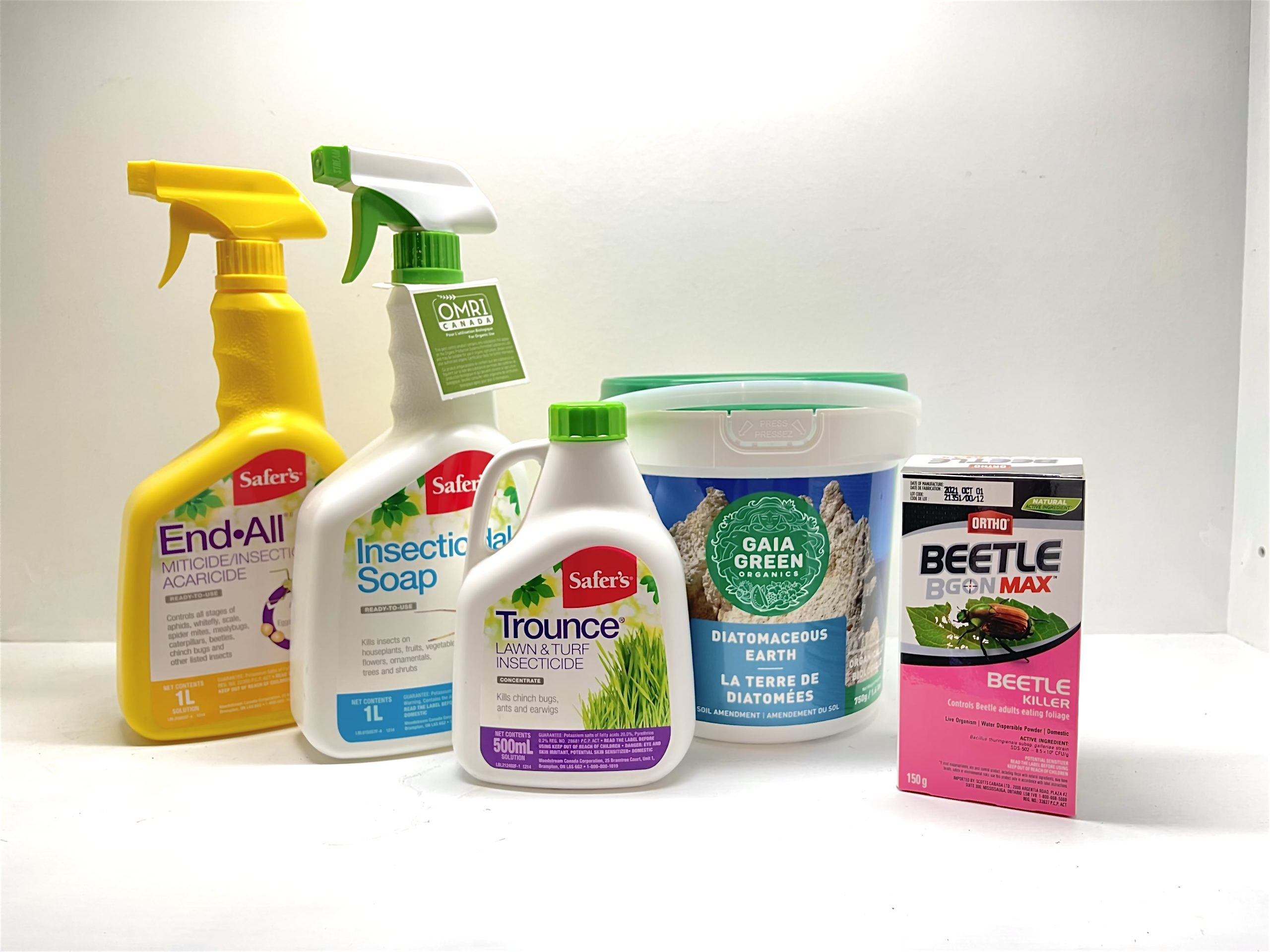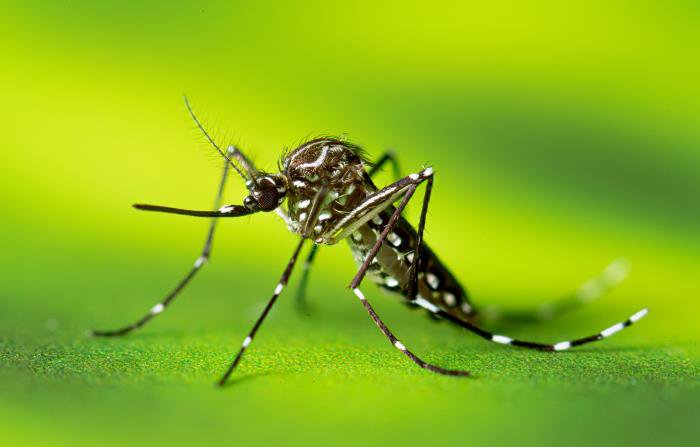
A Mosquito-Free Summer
Mosquito Control
Enjoy your summer without bites.
Getting bitten in your tent, or in your garage, or outside on the patio – not the fun parts of summer. Be prepared this year with mosquito repellents to avoid these pesky insects.

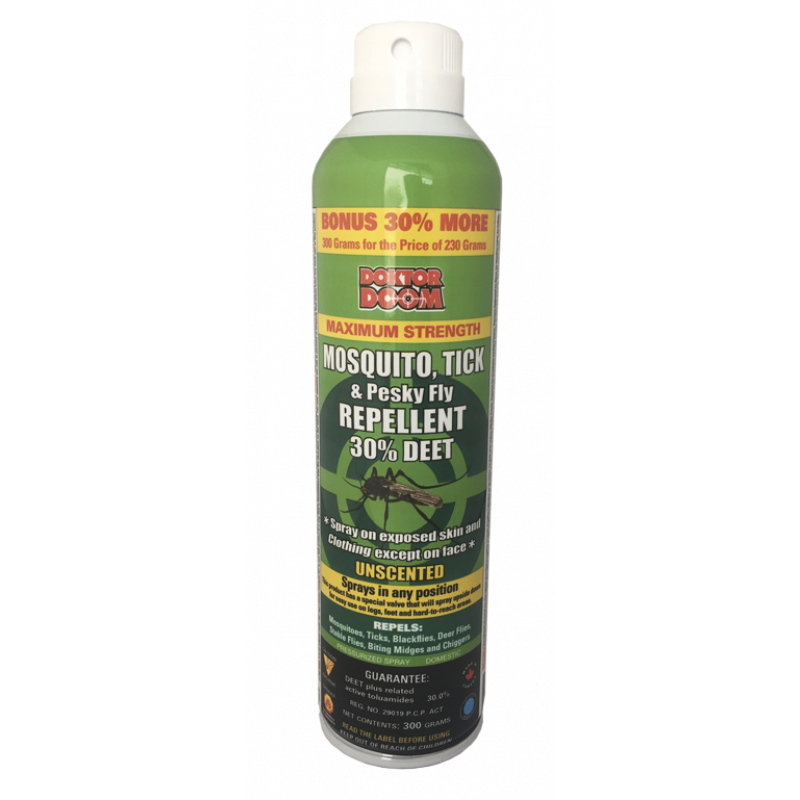
Doktor Doom Mosquito, Tick & Pesky Fly Repellent
Spray on clothing and exposed skin to repel ticks, mosquitoes, black flies, deer flies, stable flies, biting midges and chiggers. Unscented spray is ideal for those with sensitivities to artificial fragrances.
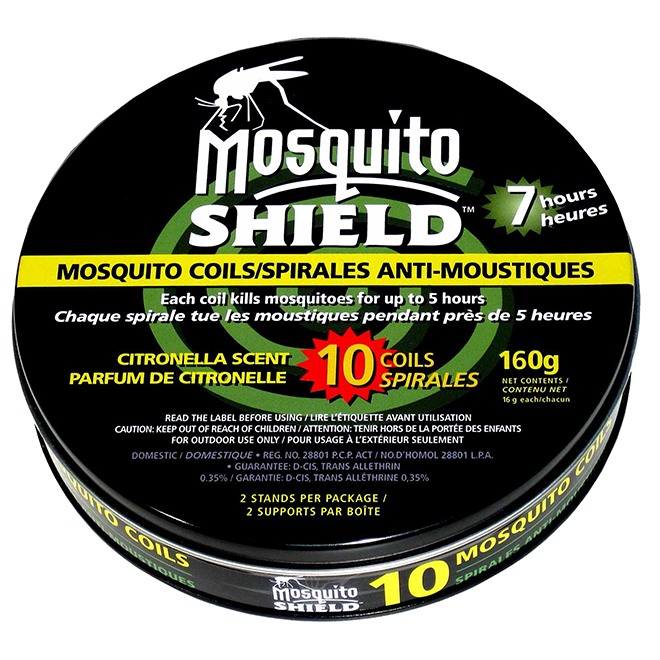
Mosquito Shield Coils
Ideal for camping and any other outdoor activities. This mosquito-repelling spiral releases the scent of citronella, and will be your ally outdoors. Each spiral provides 7 hours of protection. Available in a tin and sold separately.
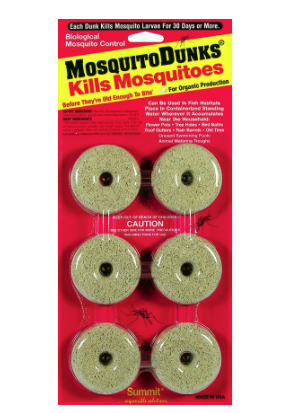
Summit Mosquito Dunks
A Mosquito Dunk looks like a small, beige donut which floats on standing water. As the Dunk slowly dissolves, it releases a bacterium which is toxic to all species of mosquito larvae. Use in any standing water including rain barrels, bird baths, tree holes, elevator shafts, planter reservoirs, and rain gutters.
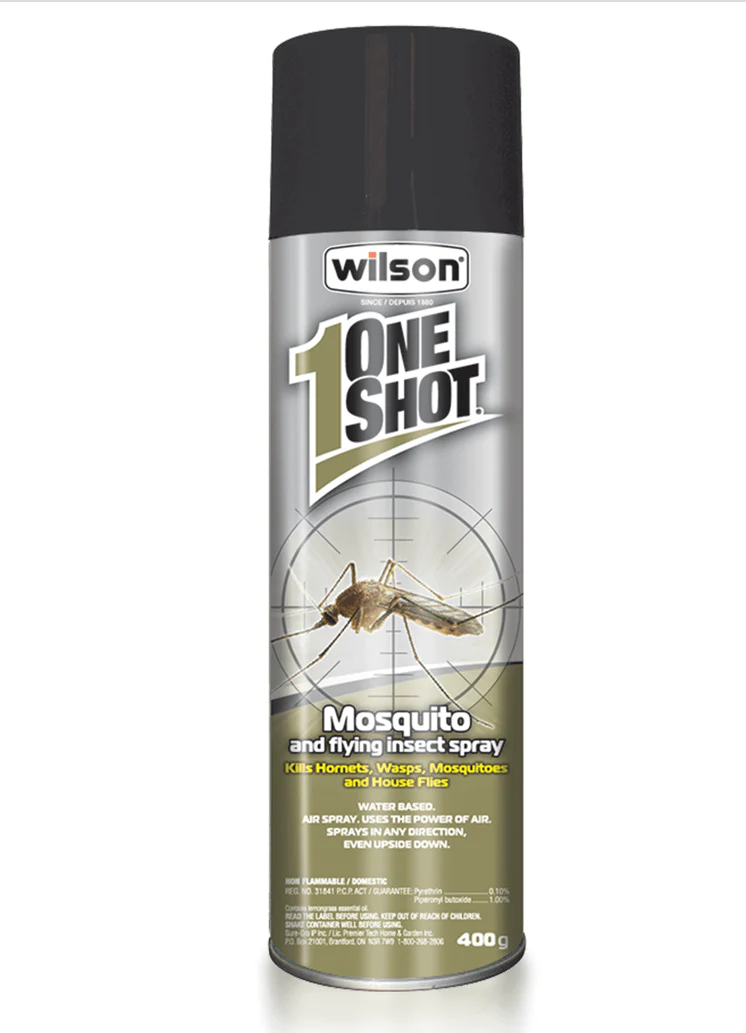
Wilson OneShot Mosquito & Flying Insect Spray
Controls insects both indoors and outdoors. Fast knock down action on a variety of flying insects including mosquitos, wasps, house flies and more Contains lemongrass essential oil for a fresh citron scent.
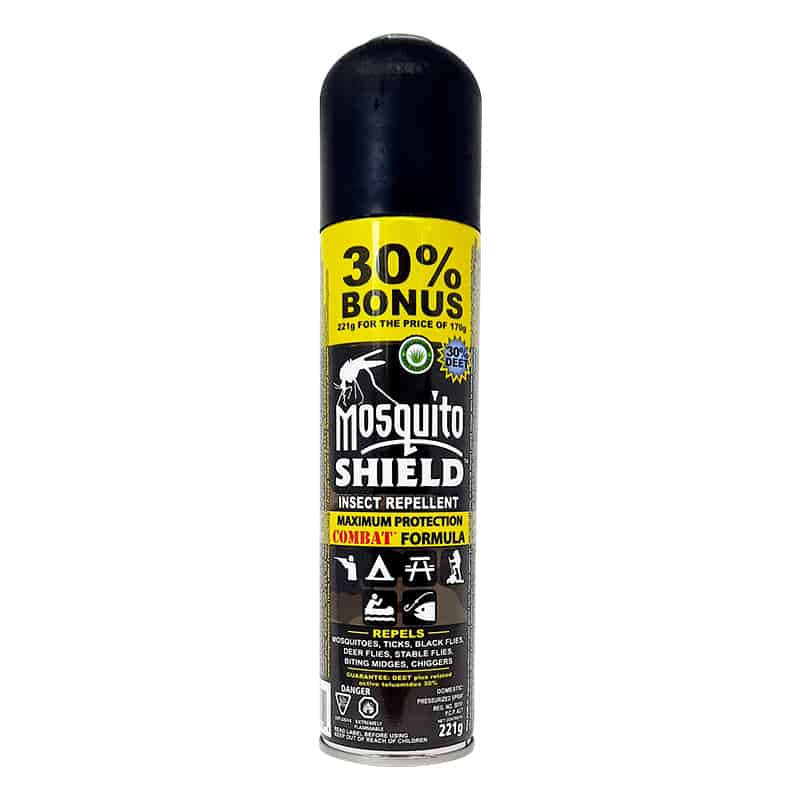
Mosquito Shield Combat Formula
With 30% DEET, this formula has protection for up to 8 hours. Effective against mosquitoes, black flies, deer flies, stable flies, ticks, biting midges and chiggers. Designed for outdoor activists in mind.
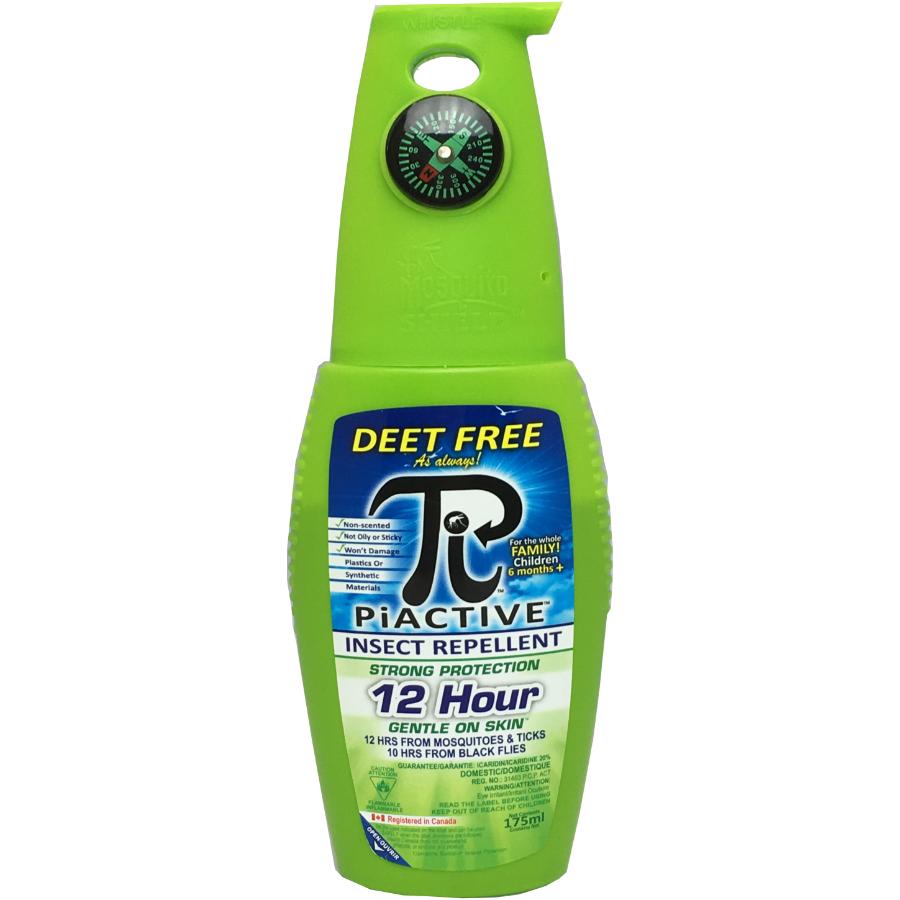
PiACTIVE Insect Repellent 40ml, 150g
Spray provides long-lasting, 12 hour effective
protection from mosquitoes and ticks, and 10 hour protection from black flies. Not oily, greasy or sticky.
Find what suits your needs.
Mosquitoes are able to pierce through your skin with a specialized organ called a proboscis. This is what allows them to draw the blood of you or your pet, which is an important nutrient source for female mosquitoes to reproduce.
Nonetheless, this behaviour is frustrating to us who want to enjoy our wonderful Alberta summers without itching constantly! This itching comes from the saliva of mosquitoes, to which our immune system quickly attempts to respond to. Our inflammation response creates the itchy, red, and swollen characteristics of bites – though a chemical called histamine. Everyone reacts differently to mosquito bites depending on the inner workings of their immune system.
You’ll find especially large quantities of mosquitoes in swamps, marshes, or wet terrain, where the bugs can lay their eggs.
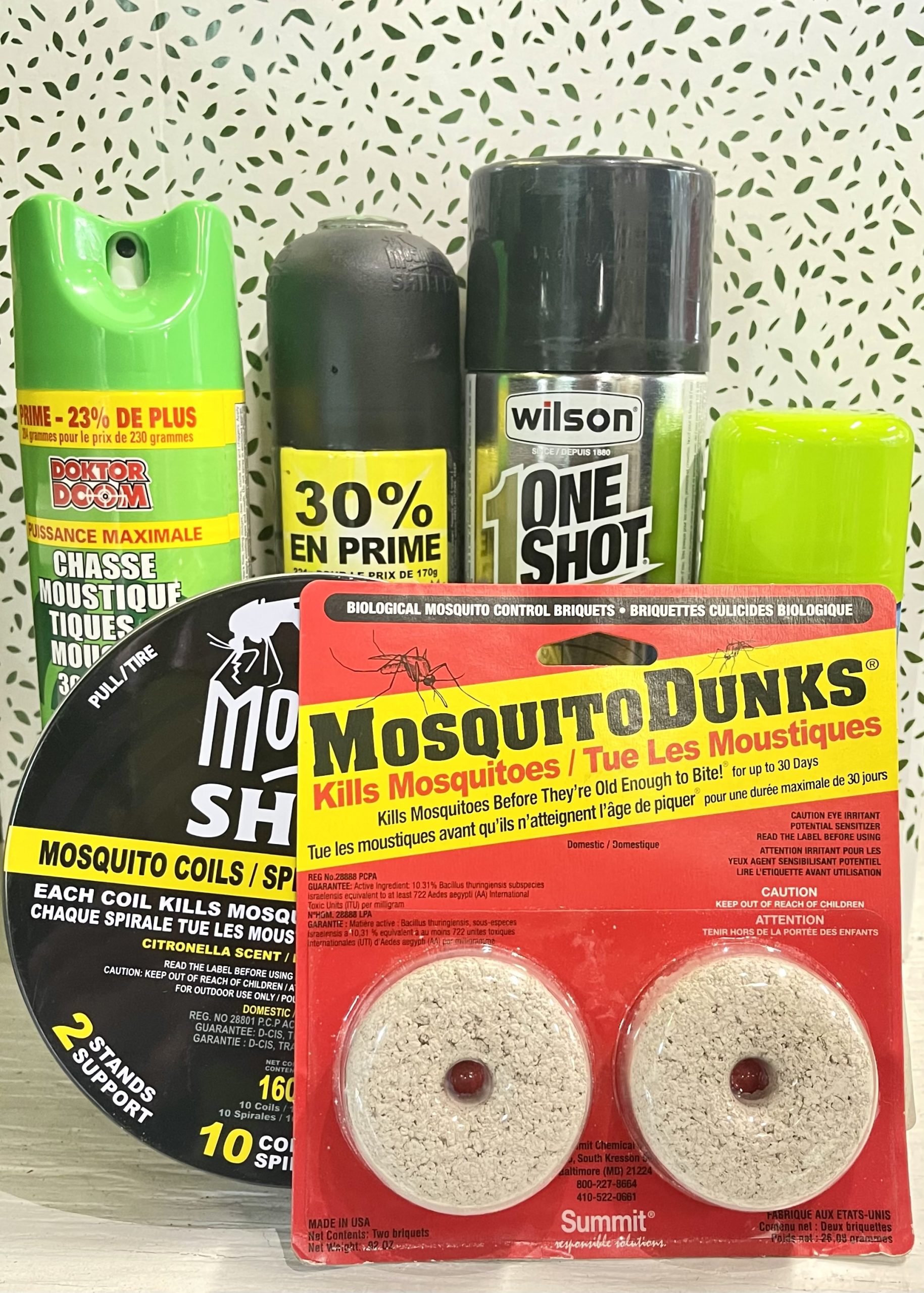
A prelimary step to managing these pesky insects is to remove any still water from your area. A pond in your backyard can attract mosquitoes to your area. The same goes for birdbaths. If this is a part of your issue, try Summit Mosquito Dunks. This product will float and dissolve in water to kill off any mosquito larvae by using a special type of bacteria called Bacillus thuringiensis subspecies israelensis. This species of bacteria only affects the larvae of some flying insects and will have no affect of humans.
You can also grow certain plants in your garden as a fantastic natural preventative measure. Fragrant plants and flowers like sage, rosemary, lemon grass, catmint, citronells, and lavender can overwhelm and repel bugs. These essential oils are found in products like Wilson’s Mosquito & Flying Insect Spray and Mosquito Sheild Coils.
DEET is found in Mosquito Sheild Combat Formula Spray and Doktor Doom Mosquito, Tick & Pesky Fly Repellent. It works by disrupting the sensory information of mosquitoes and similar insects. This can be applied directly to your clothes and skin to keep the bugs at bay.
By Julia Bowen
